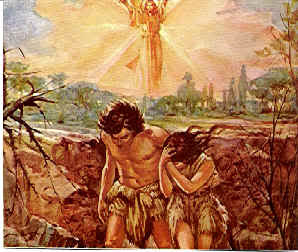 Not the eternal Heaven (New Earth) that all believers will occupy when they are resurrected. The eternal Heaven (New Earth) will be a physical world with material objects, not some ghostly place where we float on spiritual “clouds.” Randy Alcorn sets us straight about the eternal Heaven in his book called Heaven. Alcorn laments:
Not the eternal Heaven (New Earth) that all believers will occupy when they are resurrected. The eternal Heaven (New Earth) will be a physical world with material objects, not some ghostly place where we float on spiritual “clouds.” Randy Alcorn sets us straight about the eternal Heaven in his book called Heaven. Alcorn laments:
Many books on Heaven say nothing about the New Earth. Sometimes a few paragraphs, vaguely worded, are tacked on at the end. Other books address the New Earth but undercut its true nature: “Is this new earth like our present earth? Probably not.” But if it isn’t, why does God call it a New Earth? One author says, “The eternal phase of Heaven will be so unlike what we are familiar with that our present language can’t even describe it.” Certainly our present language can’t fully describe it, but it does in fact describe it (e.g., Revelation 21– 22).
Does anybody want to live forever in a disembodied state? I don’t. Does anybody want to live forever on this sin-filled mess we call planet earth? I don’t. So what is it we crave? What do we desire?
We are homesick for Eden. We’re nostalgic for what is implanted in our hearts. It’s built into us, perhaps even at a genetic level. We long for what the first man and woman once enjoyed— a perfect and beautiful Earth with free and untainted relationships with God, each other, animals, and our environment. Every attempt at human progress has been an attempt to overcome what was lost in the Fall.
Alcorn continues:
Our ancestors came from Eden. We are headed toward a New Earth. Meanwhile, we live out our lives on a sin-corrupted Earth, between Eden and the New Earth, but we must never forget that this is not our natural state. Sin and death and suffering and war and poverty are not natural— they are the devastating results of our rebellion against God.
We long for a return to Paradise—a perfect world, without the corruption of sin, where God walks with us and talks with us in the cool of the day. Because we’re human beings , we desire something tangible and physical, something that will not fade away. And that is exactly what God promises us— a home that will not be destroyed, a kingdom that will not fade, a city with unshakable foundations, an incorruptible inheritance.
This present earth is not our true home. A disembodied state of existence is not our ultimate destiny. Instead, we are looking forward to a newly constituted Earth that is our true home. Alcorn concludes:
Adam was formed from the dust of the earth, forever establishing our connection to the earth (Genesis 2:7). Just as we are made from the earth, so too we are made for the earth. But, you may object, Jesus said he was going to prepare a place for us and would take us there to live with him forever (John 14:2-3). Yes. But what is that place? Revelation 21 makes it clear— it’s the New Earth. That’s where the New Jerusalem will reside when it comes down out of Heaven. Only then will we be truly home.
 In the Book of Genesis we read that after Adam and Eve sinned against God, God pronounced a curse on them and all creation. “Cursed is the ground [earth] because of you” (Genesis 3: 17). Mankind would be subject to “painful toil” among “thorns and thistles.” After a difficult life, men and women would die, returning to the ground from which they were made.
In the Book of Genesis we read that after Adam and Eve sinned against God, God pronounced a curse on them and all creation. “Cursed is the ground [earth] because of you” (Genesis 3: 17). Mankind would be subject to “painful toil” among “thorns and thistles.” After a difficult life, men and women would die, returning to the ground from which they were made.